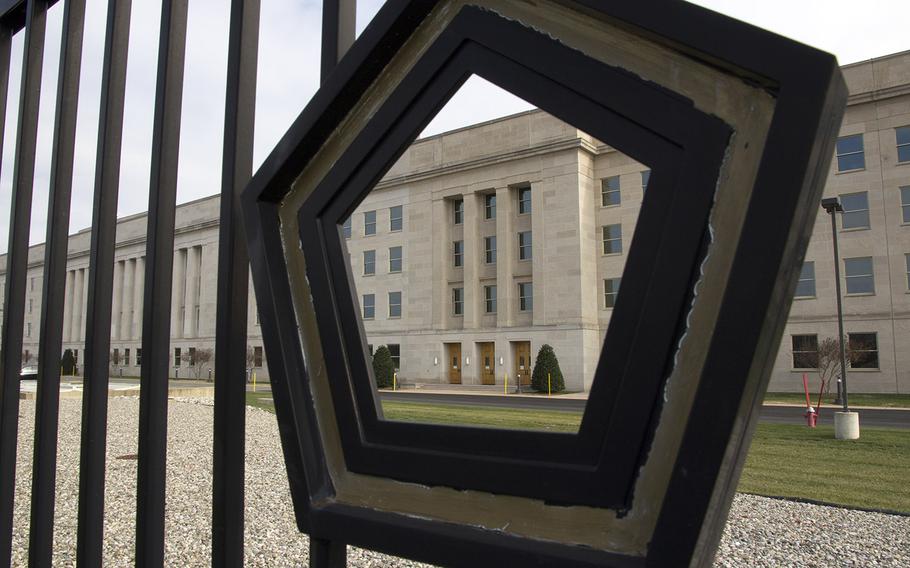
The Pentagon (Stars and Stripes)
WASHINGTON — The Pentagon inspector general is looking into allegations that Central Command officials altered intelligence assessments to provide a more optimistic account of progress in the U.S.-led campaign against the Islamic State in Iraq, it was reported Wednesday.
The New York Times cited “several” unnamed officials familiar with the inquiry as saying the investigation began after at least one civilian Defense Intelligence Agency analyst said he had evidence that CENTCOM officials were improperly reworking conclusions of intelligence assessments prepared for policymakers, including President Barack Obama.
CENTCOM spokesman Col. Patrick Ryder told the newspaper that he could not comment on an ongoing IG investigation but noted that “the IG has a responsibility to investigate all allegations made, and we welcome and support their independent oversight.”
Ryder told The Associated Press that the government's numerous intelligence agencies routinely produce a wide range of "subjective assessments related to the current security environment," and that it is customary for agencies to comment on others' draft assessments.
"However, it is ultimately up to the primary agency or organization whether or not they incorporate any recommended changes or additions. Further, the multi-source nature of our assessment process purposely guards against any single report or opinion unduly influencing leaders and decision-makers," Ryder said.
A Pentagon spokesman noted that the inspector general operates independently of the Defense Department. Navy Capt. Jeff Davis, the DOD spokesman, told reporters Wednesday that intelligence analysts routinely provide defense officials “differing views” on reports.
“The Secretary (of Defense) counts on independent intelligence and analysis from a variety of sources to help him make critical decisions about the nation’s security,” Davis said, adding that he could not further discuss the nature of intelligence gathering and analysis.
The Times said it did not have more complete details about when the assessments were allegedly altered or who at CENTCOM was responsible. It reported that the officials, who spoke on condition of anonymity because the matters were classified said the investigation will try to determine whether CENTCOM officials had altered conclusions of draft intelligence assessments and then passed them along.
Government regulations stipulate that intelligence assessments “must not be distorted” by agendas or policy views. Analysts must cite sources that support their conclusions and acknowledge different viewpoints.
“The prospect of skewed intelligence raises new questions about the direction of the government’s war with the Islamic State, and could help explain why pronouncements about the progress of the campaign have varied widely,” the newspaper said.
Federal law states that intelligence officials can bring claims of wrongdoing to the intelligence community’s IG. If the claims are found credible, the complaints must be forwarded to the House and Senate intelligence committees. That occurred in the past several weeks, the newspaper said, and the Pentagon IG decided to open an investigation.
White House press secretary Josh Earnest said Obama "places a premium" on getting unvarnished intelligence assessments and a range of views for policymakers.
"That yields, in the minds of our experts, the best, richest account of the facts on the ground," Earnest said, adding that the president is confident he is receiving honest intelligence assessments.
Pentagon officials say they have been publicly candid about the difficulty of the war against the Islamic State. At times, however, they have painted a rosier picture than was reflected by developments on the ground.
On May 15, for example, Brig. Gen. Thomas Weidley, who at the time was chief of staff to the military headquarters running the war, told reporters that the Islamic State was "losing and remains on the defensive." Even as he spoke, Iraqi officials were saying that Islamic State fighters had captured the main government compound in Ramadi, the capital of Anbar province. Two days later the city fell, marking a significant victory for the extremusts and a setback for the U.S. and Iraq.
The Associated Press contributed to this report.